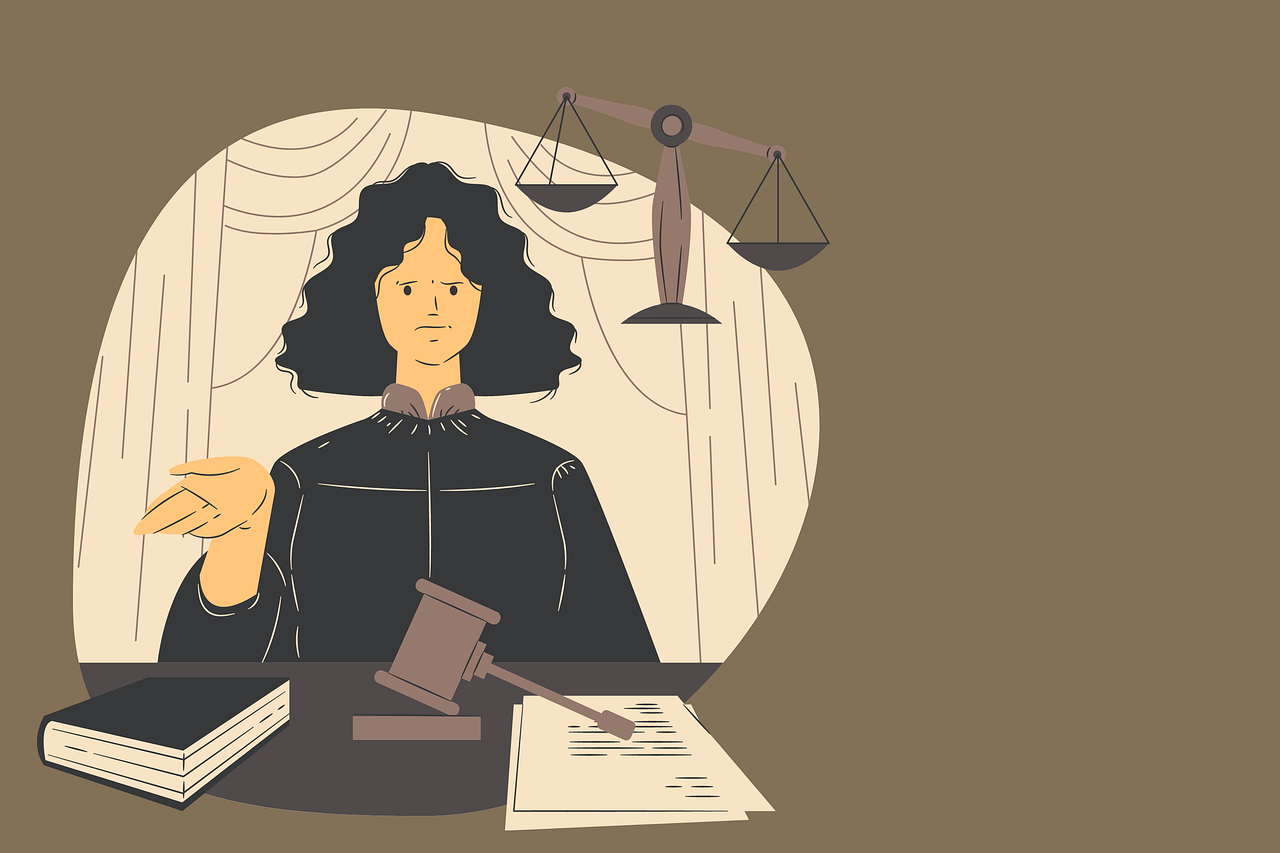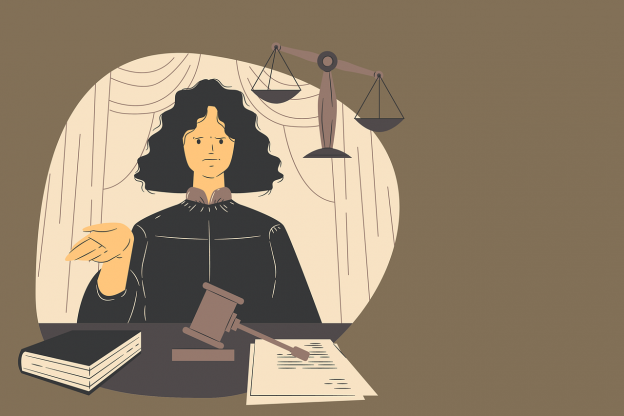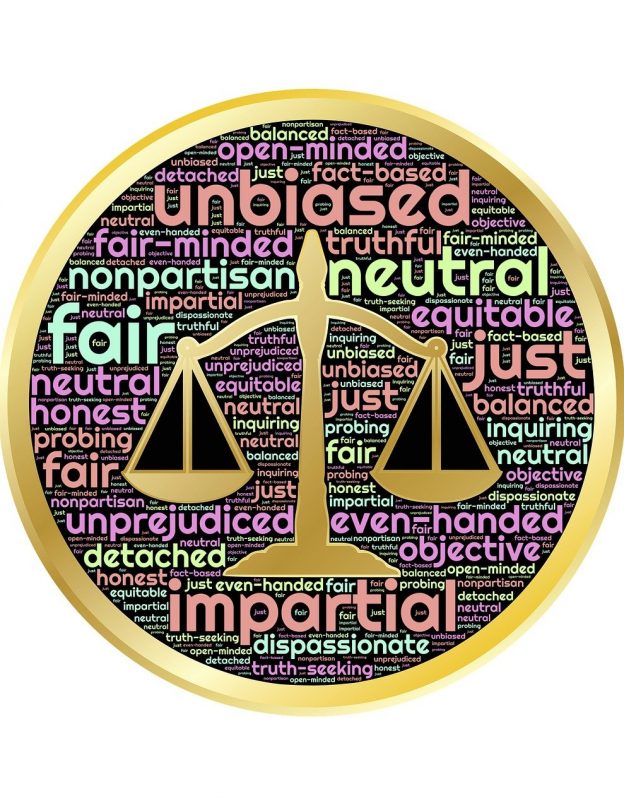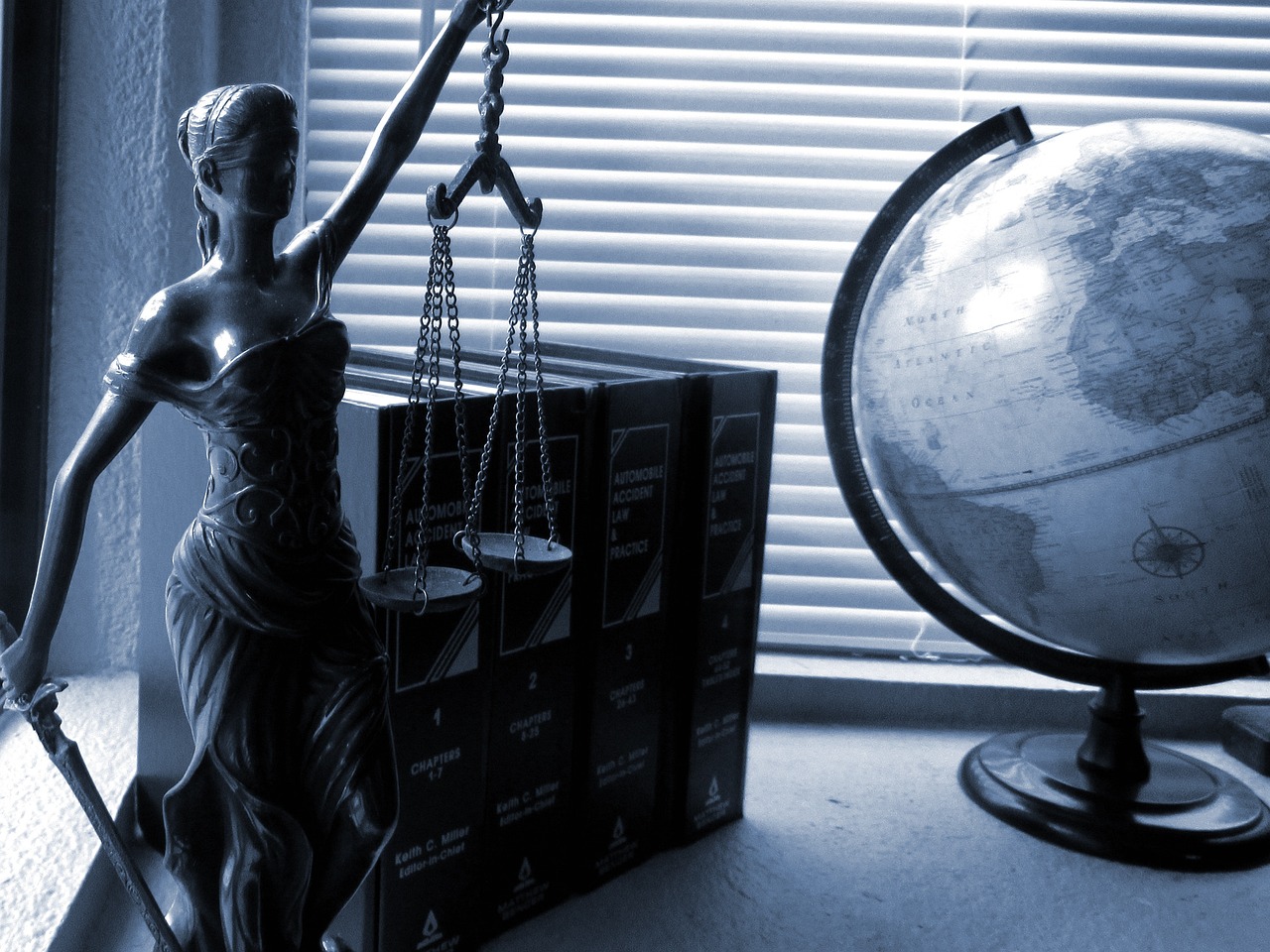As a criminal defense paralegal, your role is crucial in assisting attorneys in representing individuals facing criminal charges. With a deep understanding of the legal system and a dedication to providing exceptional support, you play a vital part in ensuring a fair defense for your clients. From conducting thorough research and gathering evidence to preparing legal documents and assisting in trial preparations, your expertise contributes to a comprehensive defense strategy. By staying up-to-date with the ever-evolving laws and regulations, you are able to navigate the complexities of the criminal justice system and provide guidance and reassurance to those in need. With a compassionate approach and a commitment to justice, you are an invaluable asset in helping individuals overcome adversity and achieve the best possible outcome in their cases.

Role of a Criminal Defense Paralegal
A criminal defense paralegal plays a vital role in supporting criminal defense attorneys and ensuring the smooth functioning of the legal team. With their specialized legal knowledge and skills, they contribute to the overall success of the defense strategy. In this article, we will explore the job description, responsibilities, necessary skills and qualifications, the importance of criminal defense paralegals, their role in a law firm, interaction with clients, the importance of ethics and professionalism, common challenges they face, and the career outlook and opportunities in this field.
Job Description
The job description of a criminal defense paralegal encompasses a wide range of tasks that assist the defense attorney in all aspects of a case. They are responsible for conducting legal research, drafting legal documents, organizing case files, and assisting the attorney in the preparation of defense strategies. They may also be involved in client interviews, witness interviews, and document management. Moreover, they play a crucial role in case investigation and trial preparation.
Responsibilities
The responsibilities of a criminal defense paralegal are extensive. They assist the defense attorney in every step of the legal process, from case inception to trial. Some of their key responsibilities include:
-
Conducting legal research: A criminal defense paralegal is responsible for conducting thorough legal research on relevant statutes, case law, and legal precedents to support the defense strategy. This requires excellent research skills and a firm grasp of legal concepts.
-
Drafting legal documents: They prepare various legal documents, such as motions, pleadings, and briefs, under the attorney’s guidance. These documents play a crucial role in presenting the defense’s argument effectively and persuasively.
-
Case file organization: A criminal defense paralegal assists in organizing and managing case files, ensuring that all documents, evidence, and information are properly filed and easily accessible. This promotes efficiency and streamlines the defense team’s workflow.
-
Trial preparation: They contribute to the attorney’s trial preparation by assisting in the identification and preparation of witnesses, organizing exhibits, and reviewing evidence. Their meticulous attention to detail and organizational skills greatly contribute to a successful defense strategy.
Skills and Qualifications
To excel in the role of a criminal defense paralegal, certain skills and qualifications are essential. These include legal knowledge, organizational skills, research skills, and communication skills.
Legal Knowledge
A comprehensive understanding of criminal law is crucial for a criminal defense paralegal. They must be familiar with legal concepts, procedures, and guidelines specific to criminal defense cases. This includes knowledge of relevant statutes, case law, evidentiary rules, and the criminal justice system.
Organizational Skills
Organizational skills are vital for a criminal defense paralegal due to the complex nature of criminal cases. They must effectively manage multiple tasks, deadlines, and documentation. This includes maintaining case files, organizing evidence, and coordinating with various parties involved in the legal process.
Research Skills
Strong research skills are essential for a criminal defense paralegal to conduct thorough and accurate legal research. They must be proficient in utilizing research tools and databases to gather information, analyze legal precedents, and identify relevant case law that supports the defense strategy.
Communication Skills
Effective communication skills are crucial for a criminal defense paralegal in their interactions with clients, attorneys, witnesses, and other professionals involved in the legal process. They must have the ability to articulate complex legal concepts in a clear and concise manner, both orally and in writing.
Educational Requirements
To pursue a career as a criminal defense paralegal, specific educational requirements must be met. These typically include obtaining a paralegal certificate or an associate’s degree in paralegal studies.
Paralegal Certificate
Many accredited institutions offer paralegal certificate programs that provide a comprehensive foundation in legal concepts and practical skills. These programs typically cover various areas of law, including criminal law, and equip students with the necessary knowledge and skills to excel as a paralegal.
Associate’s Degree
An associate’s degree in paralegal studies provides a broader and more in-depth understanding of legal principles and practices. This degree program often includes coursework specifically focused on criminal law, criminal procedure, and other relevant areas.
While educational requirements vary, obtaining a paralegal certificate or an associate’s degree is highly recommended for aspiring criminal defense paralegals. These programs provide a solid foundation and demonstrate a commitment to professional development.
Importance of a Criminal Defense Paralegal
Criminal defense paralegals play a crucial role in the defense of individuals facing criminal charges. Their contributions are invaluable in assisting the defense attorney, preparing the case, and maintaining strong client relationships.
Assisting the Defense Attorney
Criminal defense attorneys rely heavily on the support and expertise of paralegals to effectively represent their clients. Paralegals assist attorneys in legal research, drafting legal documents, and organizing case files, allowing attorneys to focus on developing defense strategies and advocating for their clients.
Case Preparation and Investigation
Criminal defense paralegals play a significant role in case preparation and investigation. They assist in gathering evidence, interviewing witnesses, and conducting background research on the opposing party. By meticulously analyzing facts and developing a comprehensive understanding of the case, they contribute to the development of an effective defense strategy.
Client Support and Communication
Criminal defense paralegals provide invaluable support to clients throughout the legal process. They assist in explaining legal procedures, answering questions, and addressing client concerns. By maintaining open lines of communication, they ensure that clients are informed and involved in their defense, thereby instilling confidence and trust.
Working in a Law Firm
Criminal defense paralegals often work in law firms specializing in criminal defense, where they play an integral role in the overall functioning of the firm. Their responsibilities extend beyond individual cases and include team collaboration, case management, and legal research.
Team Collaboration
In a law firm setting, criminal defense paralegals work closely with attorneys and other legal professionals as part of a legal team. They collaborate on case strategies, share research findings, and assist attorneys in meeting deadlines and client expectations. Effective team collaboration is essential for the successful handling of criminal defense cases.
Case Management
Criminal defense paralegals are responsible for managing case files, ensuring that all documents, evidence, and information are properly organized and accessible. They play a critical role in coordinating with various parties involved in the legal process, such as witnesses, experts, and court personnel.
Legal Research
Legal research is a fundamental aspect of the work performed by criminal defense paralegals in a law firm. They assist attorneys in conducting thorough research on legal issues relevant to ongoing cases. This involves reviewing statutes, case law, and legal precedents to support defense strategies and identify potential legal arguments.
Interaction with Clients
Effective communication with clients is crucial for criminal defense paralegals. They interact with clients throughout the legal process, from initial consultations to providing updates on case progress.
Initial Consultations
During initial consultations, criminal defense paralegals often play a key role in gathering information about the client’s case, explaining legal procedures, and assessing the client’s legal needs. This initial interaction sets the foundation for a strong attorney-client relationship.
Maintaining Client Relationships
Criminal defense paralegals maintain ongoing communication with clients, ensuring that they are informed about the progress of their case and addressing any concerns they may have. By providing regular updates and being proactive in client communication, paralegals contribute to maintaining strong client relationships.
Providing Legal Updates
Criminal defense paralegals keep clients informed about important developments in their case, such as court dates, hearings, and any changes in the defense strategy. This ensures that clients are informed and can actively participate in their defense.
Ethics and Professionalism
Maintaining high ethical standards and professionalism is essential for criminal defense paralegals. They must adhere to strict ethical guidelines to protect client confidentiality, avoid conflicts of interest, and comply with legal regulations.
Maintaining Confidentiality
Criminal defense paralegals are entrusted with confidential client information. It is their ethical duty to maintain strict confidentiality and protect client privacy. This includes safeguarding sensitive information and not disclosing it to unauthorized individuals.
Avoiding Conflicts of Interest
Criminal defense paralegals must be vigilant in avoiding conflicts of interest that may compromise the attorney-client relationship. They must ensure that they do not have any personal or professional relationships that could potentially impact their objectivity or compromise the client’s best interests.
Compliance with Legal Regulations
Criminal defense paralegals must adhere to all legal regulations and guidelines applicable to their profession. This includes ensuring that they are familiar with their jurisdiction’s rules of professional conduct and maintaining compliance with those rules.
Common Challenges Faced
Working as a criminal defense paralegal can be demanding and challenging. Some of the common challenges faced by criminal defense paralegals include heavy workloads and time management, emotional toll of working in criminal defense, and dealing with difficult clients.
Heavy Workload and Time Management
Criminal defense cases can be complex and time-sensitive, often requiring paralegals to manage multiple tasks and deadlines simultaneously. Effectively managing a heavy workload and prioritizing tasks is vital to ensuring the timely and efficient handling of cases.
Emotional Toll of Working in Criminal Defense
Dealing with criminal cases, particularly those involving serious charges, can take an emotional toll on criminal defense paralegals. They may be exposed to graphic details, distressing situations, and emotionally charged clients. Developing coping mechanisms and self-care strategies is crucial to maintaining emotional well-being.
Dealing with Difficult Clients
Criminal defense paralegals may encounter difficult clients who are anxious, stressed, or uncooperative. It requires strong communication and interpersonal skills to effectively handle such situations and maintain professionalism while providing the necessary support and assistance to the client.
Career Outlook and Opportunities
The career outlook for criminal defense paralegals is promising, with a growing demand for their expertise. As the legal system continues to evolve, the need for qualified paralegals in criminal defense practices is expected to increase.
Job Market
According to the Bureau of Labor Statistics, the employment of paralegals and legal assistants is projected to grow 10% from 2019 to 2029, faster than the average for all occupations. This growth is driven by the need for legal services in criminal defense and other sectors.
Advancement Opportunities
Criminal defense paralegals can pursue various advancement opportunities in their careers. They may take on supervisory roles, become case managers, or specialize in a specific area of criminal defense, such as white-collar crime or juvenile justice. Additionally, gaining experience and expertise can lead to increased responsibilities and higher salary ranges.
Continuing Education
Continuing education is crucial for criminal defense paralegals to stay updated with the latest legal developments and enhance their skills. They can pursue advanced certifications or enroll in specialized courses to further expand their knowledge and expertise in criminal defense.
FAQs about Criminal Defense Paralegals
What does a criminal defense paralegal do?
A criminal defense paralegal assists defense attorneys with legal research, document drafting, case file organization, and trial preparation. They contribute to the overall defense strategy and provide support to clients throughout the legal process.
What qualifications are required to become a criminal defense paralegal?
To become a criminal defense paralegal, a paralegal certificate or an associate’s degree in paralegal studies is typically required. Strong legal knowledge, organizational skills, research skills, and communication skills are essential for success in this role.
How can a criminal defense paralegal support an attorney?
A criminal defense paralegal supports an attorney by conducting legal research, drafting legal documents, organizing case files, and assisting in trial preparation. They play a crucial role in case investigation, client support, and maintaining strong attorney-client relationships.
What are the typical work hours for a criminal defense paralegal?
The work hours for a criminal defense paralegal can vary depending on the law firm’s needs, case deadlines, and client demands. It is not uncommon for paralegals to work long hours, including evenings and weekends, to meet the demands of their caseload.
Can a criminal defense paralegal provide legal advice to clients?
No, a criminal defense paralegal cannot provide legal advice to clients. Only licensed attorneys are authorized to provide legal advice. However, paralegals can offer general information, explain legal procedures, and provide updates on case progress under the guidance and supervision of the defense attorney.





















































